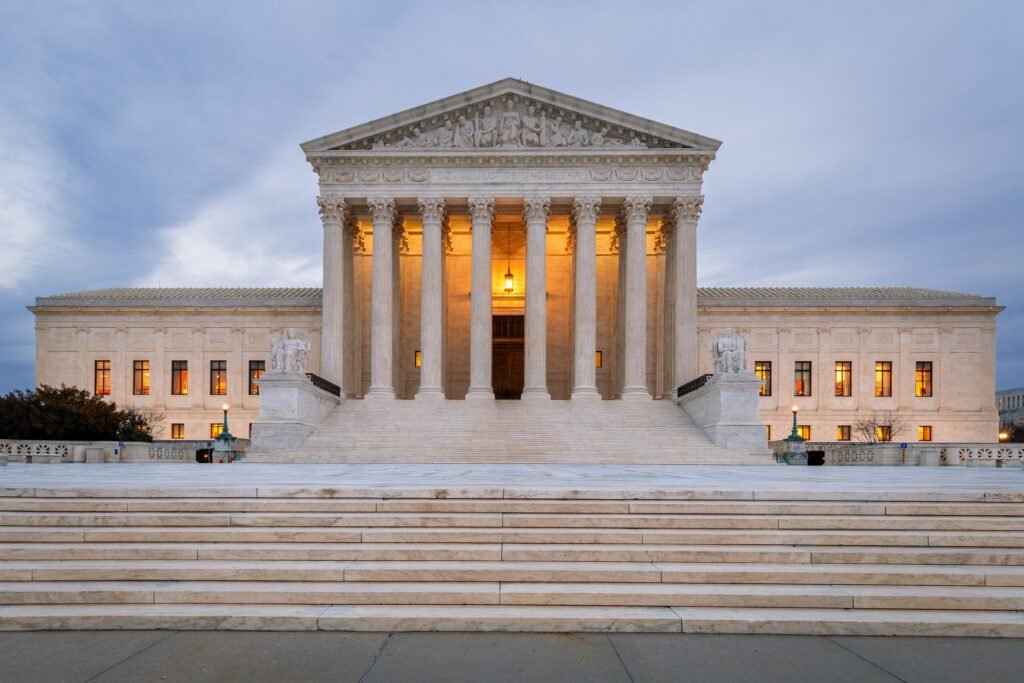U.S. Supreme Court Denies Appeal in Coinbase IRS Case: Implications for Privacy and Cryptocurrency
The U.S. Supreme Court’s recent decision to decline a significant privacy case involving the Internal Revenue Service (IRS) and Coinbase signals critical implications for users and the cryptocurrency sector at large. At the heart of this case is a Fourth Amendment challenge raised by a Coinbase customer, James “Jim” Harper, who argued that the IRS’s request for customer data amounted to an unconstitutional "fishing expedition." This article delves into the case, its background, and its potential ramifications on privacy standards and cryptocurrency regulations.
Background of the Case
The origins of this legal entanglement date back to 2020 when thousands of Coinbase users, including Harper, received notifications from the IRS. These letters warned them of potential tax discrepancies regarding their cryptocurrency transactions. The IRS, via a "John Doe summons," attempted to gather data on users who might not have reported their crypto-related incomes accurately. Harper’s lawsuit contended that this summons violated his Fourth Amendment rights, which protect against unreasonable searches and seizures by the government.
The legal contention focuses on the Treasury Department’s broad powers in matters of tax enforcement. Harper’s legal team asserted that the IRS’s expansive authority overstepped its boundaries, particularly by accessing private financial information without direct consent or due judicial process. According to them, this could signal a dangerous precedent for government surveillance.
Court Rulings: A String of Defeats
The legal proceedings have witnessed several setbacks for Harper. Initially, a New Hampshire district court dismissed his lawsuit in 2021, supporting the IRS’s actions. Harper’s subsequent appeals were also turned down. A court held that Congress has given the IRS extensive powers to issue summonses to pursue unpaid taxes, emphasizing that the agency’s actions were consistent with existing laws and safeguards.
In 2024, a U.S. appeals court further upheld the lower court’s decision, reiterating the IRS’s broad latitude in issuing summonses. Despite the cumulative setbacks, Harper’s petition for a writ of certiorari at the Supreme Court represented his last opportunity to challenge the IRS’s data requests, albeit unsuccessfully.
Privacy Implications: The Third-Party Doctrine
One of the key legal concepts in this case is the "third-party doctrine." This principle posits that individuals lose their reasonable expectation of privacy when they share information voluntarily with third parties, such as banks or payment processors. Consequently, government agencies can access this data without a warrant, thus sidestepping Fourth Amendment protections.
The Supreme Court’s refusal to take on this case means that the established views on the third-party doctrine remain unchanged, leaving many users in the cryptocurrency space vulnerable to similar governmental data-access efforts. The decision not only underscores the challenges individuals face in protecting their private financial data but also emphasizes the ongoing challenges in integrating digital currencies into existing legal frameworks.
Support from Industry and Think Tanks
Recognizing the broader implications of this case, various high-profile organizations, including tech think tanks and companies like Coinbase, submitted amicus briefs urging the Supreme Court to review the case. They contended that the outcome could significantly affect users’ privacy rights in the crypto landscape and called for a reassessment of the third-party doctrine in light of evolving technologies.
These entities highlight the precarious balance between government surveillance needs and individual privacy rights in an era where digital transactions are increasingly commonplace. However, the Supreme Court’s silence on the matter raises concerns about the future of digital privacy legislation and the rights of cryptocurrency users.
The Ripple Effect on Cryptocurrency Regulation
This case could set a troubling precedent for the cryptocurrency market. By allowing the IRS and other agencies to bypass standard protections against unreasonable searches, it questions the legitimacy of privacy rights in emerging digital economies. This decision may embolden other regulatory bodies to pursue similar broad data requests without sufficient legal recourse for individuals.
Moreover, it could deter potential investors and developers from engaging in the cryptocurrency ecosystem, fearing that their financial data is easily accessible to governmental entities. As cryptocurrencies emerge as a significant financial instrument, the lack of robust privacy protections could stifle innovation and growth in this sector.
Conclusion: The Future of Privacy and Cryptocurrency
The U.S. Supreme Court’s decision not to hear Harper’s appeal is a pivotal moment in the intersection of privacy rights and cryptocurrency regulation. While it reaffirms the IRS’s authority to demand customer data from financial institutions, it also raises critical questions regarding individual rights in an increasingly digital world. The implications of this case resonate deeply within the crypto community and extend to broader concerns about privacy in the digital age.
As the landscape of currency and finance evolves, the conversation surrounding privacy, data rights, and regulatory authority will undoubtedly intensify. The outcomes of cases like Harper’s will likely influence future legislative efforts aimed at striking a balance between necessary regulation and the protection of individuals’ constitutional rights. Recognizing these challenges is crucial for anyone involved in or considering participation in the increasingly complex cryptocurrency market.

















